Doris Drucker: Author, inventor, wife of Peter Drucker
Author, inventor, wife of Peter Drucker
Doris Schmitz Drucker, entrepreneur, author, sportswoman and mountain climber, died on October 1, 2014 at age 103. She was the widow of the eminent management theorist and professor Peter F. Drucker.
She was born in Koenigstein, Germany on June 14, 1911, the first of three children, to Fritz and Clara Schmitz, a textile merchant and a homemaker.
Doris was 3 when World War I began and, after her father was called up for the army, traveled by train with her mother and sister to the city of Mainz, where they stayed at her grandfather’s house for the four-year duration of the war.
In her 2004 memoir Invent Radium or I’ll Pull Your Hair, which USA Today called a “fast and absorbing read,” Mrs. Drucker detailed wartime experiences like being bundled into the cellar during air raids and foraging for wild plants to augment the strict rationing resulting from the Allies’ blockade of Germany.
“We ate potatoes and turnips and bread that was half sawdust. Our milk was almost transparent because it was diluted with so much water,” she recalled. “Though I did not mind the quality, I did mind that there was so little of everything. We were not starving, but we were always hungry.”
Despite such privations, the family strived to maintain its middle-class status, hanging onto servants even through a post-war period where inflation was so bad that Doris and her schoolmates did schoolwork on the back of near-worthless currency.
Education was emphasized and the Schmitz children were saturated with culture, including piano lessons and an emphasis on classical German literature. “We were introduced to the poetry and plays of Goethe and Schiller, the famous German classical writers, almost as soon as we came out of diapers,” she shared.
Mrs. Drucker drew the title of her memoir from an exchange she had with her overbearing mother. Doris aspired to study mathematics and science in college, but Clara had other ideas. After graduating from high school, Doris would move to Paris, become a trainee at Rothschild’s Bank and attract the notice of a scion of the Rothschild family. She thought that after she married a Rothschild, her daughter would be free to forge her scientific legacy.
“Be another Madam Curie and invent radium,” Mrs. Schmitz urged. Doris pointed out that the element had already been discovered, but her mother would brook no argument, insisting, “You’re going to invent radium or I’ll pull your hair.”
In the days before Hitler rose to power, European students could attend any university in Europe, one semester at a time. Doris studied law at the London School of Economics, at the Sorbonne in Paris and in Germany at the universities of Kiel and Frankfurt. While at the University of Frankfurt, she met Peter Drucker, who was serving as a substitute professor at his alma mater.
In 1932, Doris’ great uncle died, an event that proved to be life-changing.
“Returning from the funeral, we were overtaken by a band of brownshirted, jackbooted Nazis marching down the street to the Horst Wessel Lied, their venomous hate song,” Mrs. Drucker wrote in her autobiography. The uniformed men proceeded to vandalize the area in a rain of shattered glass, to the approbation of the anti-Semitic crowd. A Dutch uncle who attended the funeral was aghast at the signs of rising fascism, and urged Doris to come work for him in Holland. “This is not going to end well. If the Nazis come to power, there will be war. Leave while you can,” he said.
She heeded his advice, leaving for Holland to finish her doctoral thesis at the Permanent Court of International Justice at The Hague. “Little did I know that my departure was not a temporary escape; it became a permanent severance from Germany,” Mrs. Drucker wrote. “I have been back several times, but I never lived there again. The atrocious Nazi time all but severed any emotional attachments to my homeland.”
In 1933, Doris moved to London, spurred by the futility of pursuing a law degree in Germany given her Jewish ancestry and the fact that German Civil Law had been replaced by National Socialism Law. In a moment of serendipity, she encountered Mr. Drucker—who was in London working at a merchant bank—in the Piccadilly Underground station. They resumed their friendship, which soon turned into romance.
The couple was married on January 16, 1937 and set sail for New York, their first-class passage paid for by Mr. Drucker’s employers. The Druckers settled in Bronxville, a suburb of New York. There, Mr. Drucker taught one day a week at Sarah Lawrence College and wrote his first two books. Mrs. Drucker gave birth to their first two children, Kathleen and Vincent. In 1942, Mr. Drucker took a full-time job as a professor at Bennington College in Bennington, Vermont. While living in Bennington, he and Doris welcomed two more children, Cecily and Joan.
In 1949, Mr. Drucker became a professor of management at New York University’s Graduate School of Management. During the next 20 years, while Mr. Drucker established himself as a leading thinker in management and wrote several of his best-selling books, the Druckers settled in Montclair, New Jersey.
Mrs. Drucker was a busy mother, but was determined to continue her education. She became the first woman to earn a master’s degree in physics from Fairleigh Dickenson University, immersing herself in all of the math and science courses she had been unable to take a decade before. She also worked as a market researcher and technical patent agent in New York in the late ‘60s.
In 1971, Peter accepted an offer to join the faculty at Claremont Graduate School, now Claremont Graduate University. Coincidentally, in 1951 the Drucker family spent a summer in Claremont, traveling across the country to and from New Jersey by train (with their four children, aged 2 to 13)—with a detour to Estes Park, Colorado, which became the Druckers’ favorite summer vacation spot.
Mr. Drucker wrote many more books and continued to teach, making such an impact that Claremont Graduate University’s school of management took his name and he became known as “the father of modern management.” Meanwhile, Mrs. Drucker found a niche as a market researcher for manufacturers of high-tech scientific instruments.
In the 1990s, she founded her own company, RSQ LLC. As CEO, she invented, patented and oversaw the manufacture and marketing of a voice volume feedback device, called “Visivox,” designed for public speakers.
”A lot of people were surprised when I began building my company, and my children thought I’d gone off my rocker,” Ms. Drucker shared in a 2005 alumni profile in Fairleigh Dickinson’s FDU Magazine. “Let’s face it: Start-ups are usually considered a young person’s game and not an activity for senior citizens.
“But why should starting a business at age 80 be different from starting one at any other age?” she continued. “All you really need is good health, some determination and huge amounts of energy. Fortunately, I seemed to have all three.”
Mrs. Drucker’s focus and energy was in evidence throughout her life. She edited and critiqued all of her late husband’s 39 books, providing keen insight and invaluable help, which Professor Drucker acknowledged in numerous book dedications.
She was a gracious host to many of his consulting clients, who enjoyed coming to their home to socialize with both Mr. and Mrs. Drucker. With Professor Drucker, she visited Japan many times, becoming enamored with, and knowledgeable about, Japanese art.
She helped establish the Doris Drucker Chair in Global Management at Claremont Graduate University, and was awarded an honorary doctorate from CGU in 2001. She also played a key role in the evolution of the annual Global Peter Drucker Forum, which draws many of the world’s leading thinkers in management. In 2013, she created a video message to be viewed at the 5th Global Peter Drucker Forum. The challenge of the digital age, she emphasized, is to find leadership and avoid “mental obesity” in a world inundated with information.
An avid tennis player, Mrs. Drucker joined the Claremont Club early in its existence, and played tennis there through her 100th birthday. She also enjoyed skiing, figure skating and especially hiking. She hiked in Rocky Mountain National Park for over 50 years, ultimately “sumitting” almost every peak. She celebrated her 70th birthday with a trek in Nepal, reaching 16,000 feet in elevation.
She volunteered as a driver for the American Red Cross in New Jersey and, for over 20 years, for meals on Wheels in Claremont; she was active in several Episcopal parishes in the area; and she served on the board of the Drucker Institute at Claremont Graduate University for nearly a decade.
Mrs. Drucker was known by her many, many friends as generous, helpful, pragmatic, funny, intelligent and exceedingly caring. She had a favorite saying, “Count only the sunny days,” which reflected her lifelong optimism.
Neighbors report often receiving gifts of homemade grapefruit jam, or lemons from a backyard tree, and her dinner parties were legendary. When she received an opportunity to view the launch of the Space Shuttle in Florida, she invited a neighbor’s teenager to accompany her and her grandsons on the trip because she thought the young woman would enjoy it too.
Mrs. Drucker is survived by her four children, Kathleen Spivack of Watertown, Massachusettes, J. Vincent Drucker (Wendy) of Mill Valley, Cecily Drucker of Mill Valley and Joan Winstein of Oak Park, Illinois. She also leaves six grandchildren and three great grand-children. She was preceded in death by her husband of 68 years, and one grandchild.
A memorial service is being planned by the family. In lieu of flowers, donations may be made to Rancho Santa Ana Botanic Garden, 1500 N. College Ave., or Pilgrim Place, 625 Mayflower Rd., both in Claremont CA, 91711.


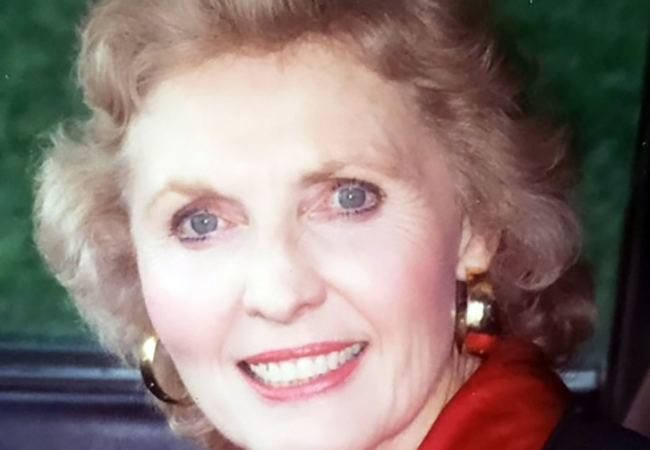
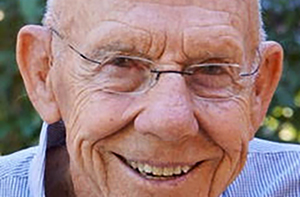
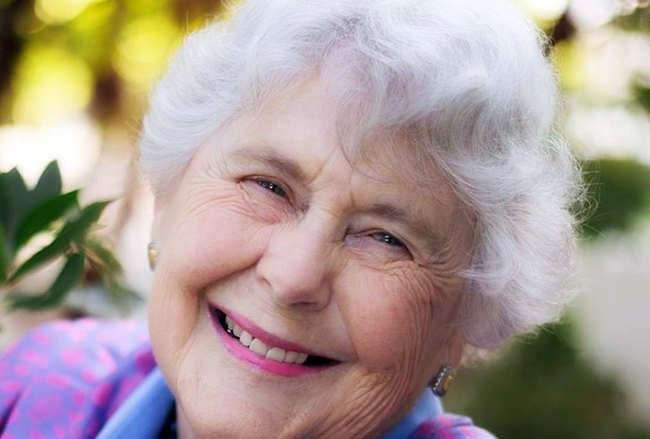
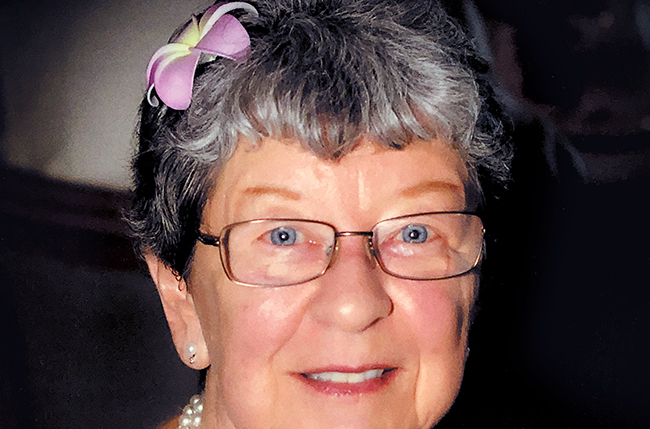
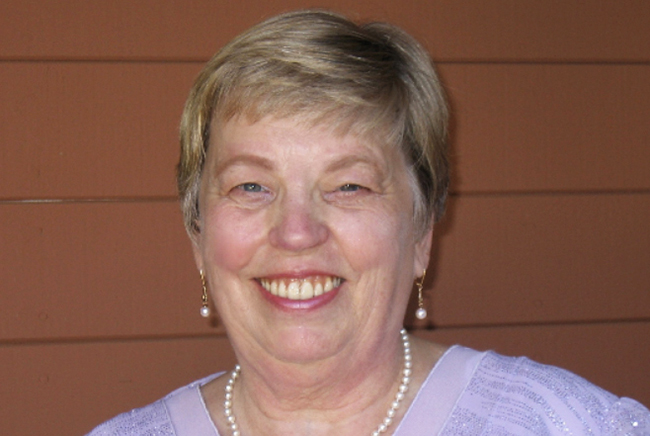
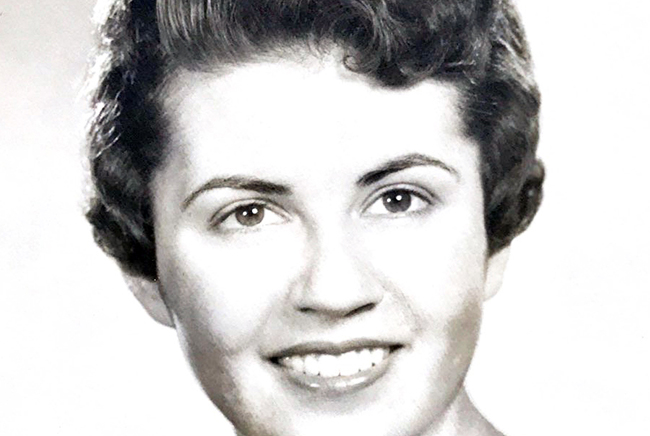

0 Comments